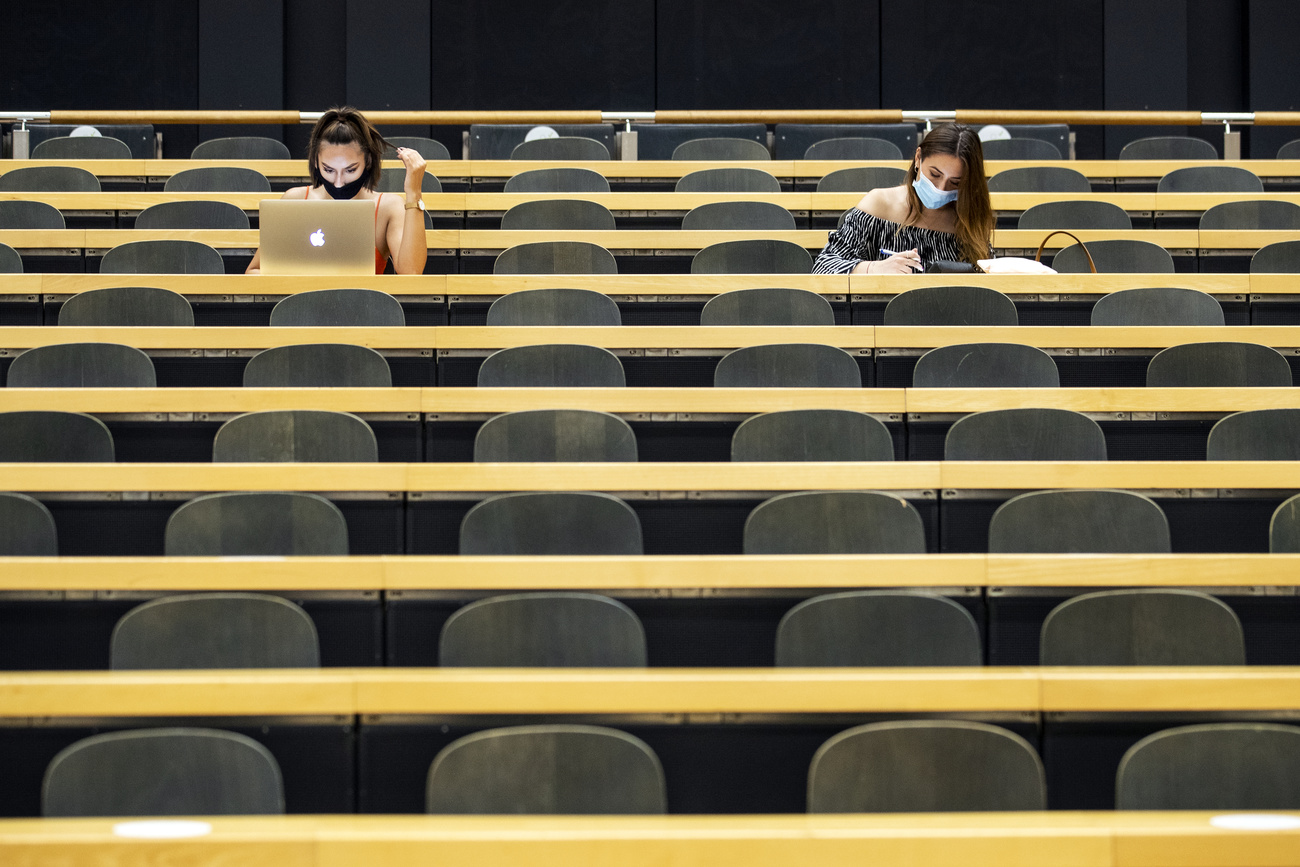
Swiss universities say they are better prepared for second wave
Universities and other higher education institutions went back to online teaching on Monday under nationwide Covid-19 rules set down by the government.

This is the second time universities have stopped in-person classes after the lockdown in spring. Schools are remaining open under the latest measures announced last Wednesday.

More
Universities return to distance learning, schools stay open
This time, universities say they are well prepared for distance learning, having been able to build on their experiences earlier this year, when they had to get online quickly.
Only a few events in small groups or seminars will take place on campus, saidExternal link Karin Hiltwein, Secretary General and head of the corona crisis team at the University of Applied Sciences and Arts Northwestern Switzerland, based in Windisch, canton Aargau.
Laboratory work and music lessons are still taking place, she said, and are “of course keeping to protection measures” such as mask wearing and social distancing.
Ban on face-to-face teaching at higher education institutions starting from Monday, 2 November. Excluded from this prohibition are teaching activities that are a necessary part of an educational program and for which a presence on site is required as well as individual lessons.
— swissuniversities (@CH_universities) October 28, 2020External link
Exams, superhuman efforts
The University of Bern started to reduce on-site teaching around two weeks ago. The institution expects the situation to continue long-term (there is no end date to the current national regulations).
Exam procedures will have to be adapted. “We have to prepare clever exams that are not just based on banal knowledge retrieval,” vice-rector Bruno Morettti told Swiss public broadcaster SRF. Students have more access to help tools at home.
Some courses might suffer “complications” as they are not meant to be undertaken online, added Marc Meyer, dean of Studies and Academic Affairs at the University of St Gallen. But “lecturers are doing their utmost to make the impossible possible,” he told SRF.
There is no alternative to online learning at the moment; students need to complete their courses and do their exams, Meyer said.
Effects on universities
Widespread breakouts of Covid-19 at universities – as seen in the United Kingdom or the United States, for example – have so far been relatively rare in Switzerland. The highest profile example was when undergraduate students at the École Hôtelière de Lausanne (EHL), one of the most prestigious hospitality management schools in the world, were placed in quarantine on September 23 after several coronavirus outbreaks.
Some have raised concerns about a second period of distance learning. Yves Flückiger, president of the umbrella group swissuniversities, said that institutions expected gaps in learning, student isolation and problems in research as a result. He told the NZZ newspaperExternal link last week that universities had to do everything in their power to maintain educational quality.

More
Coronavirus: the situation in Switzerland

In compliance with the JTI standards
More: SWI swissinfo.ch certified by the Journalism Trust Initiative






























You can find an overview of ongoing debates with our journalists here . Please join us!
If you want to start a conversation about a topic raised in this article or want to report factual errors, email us at english@swissinfo.ch.